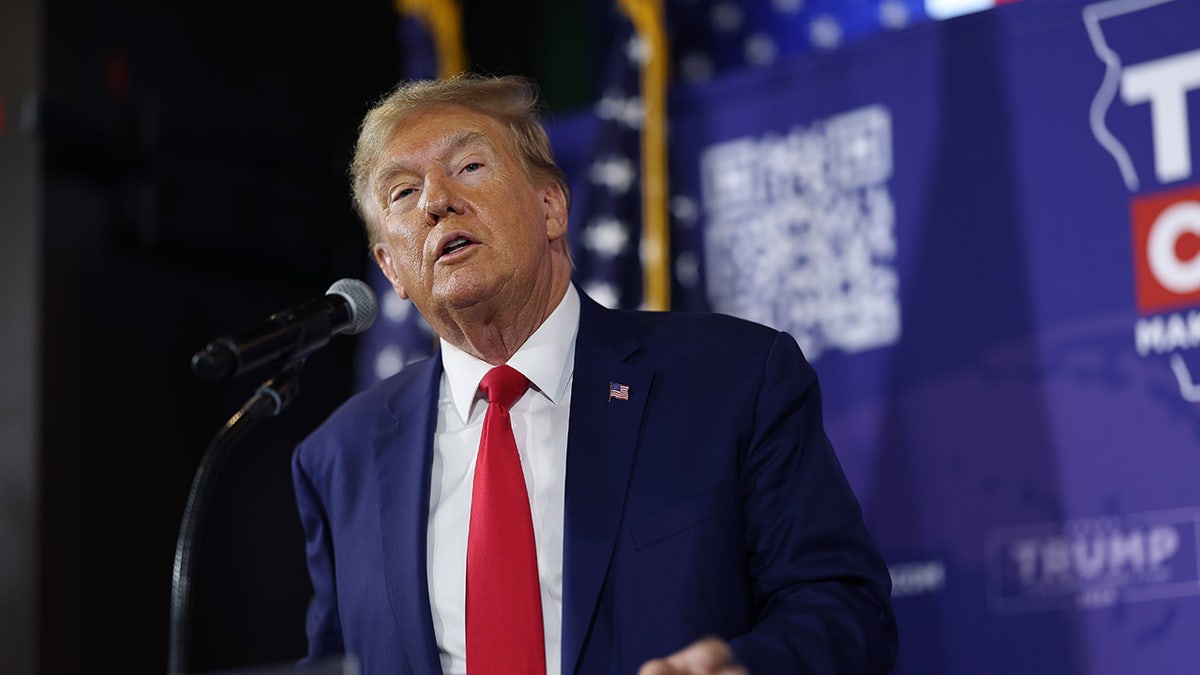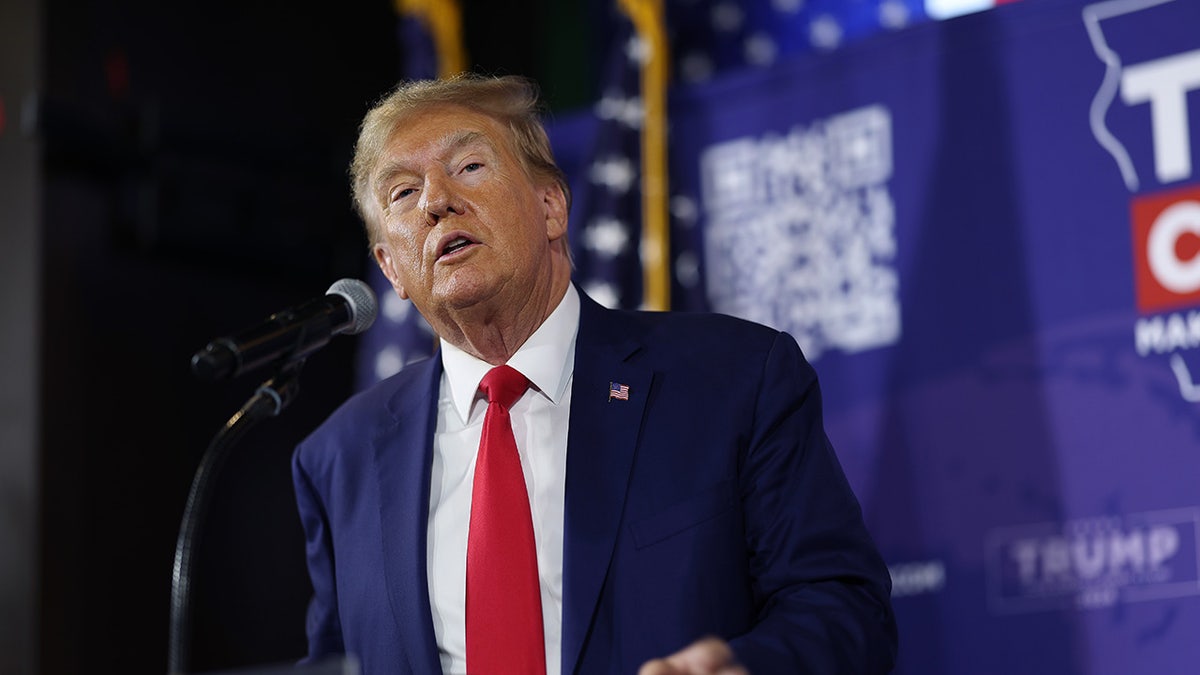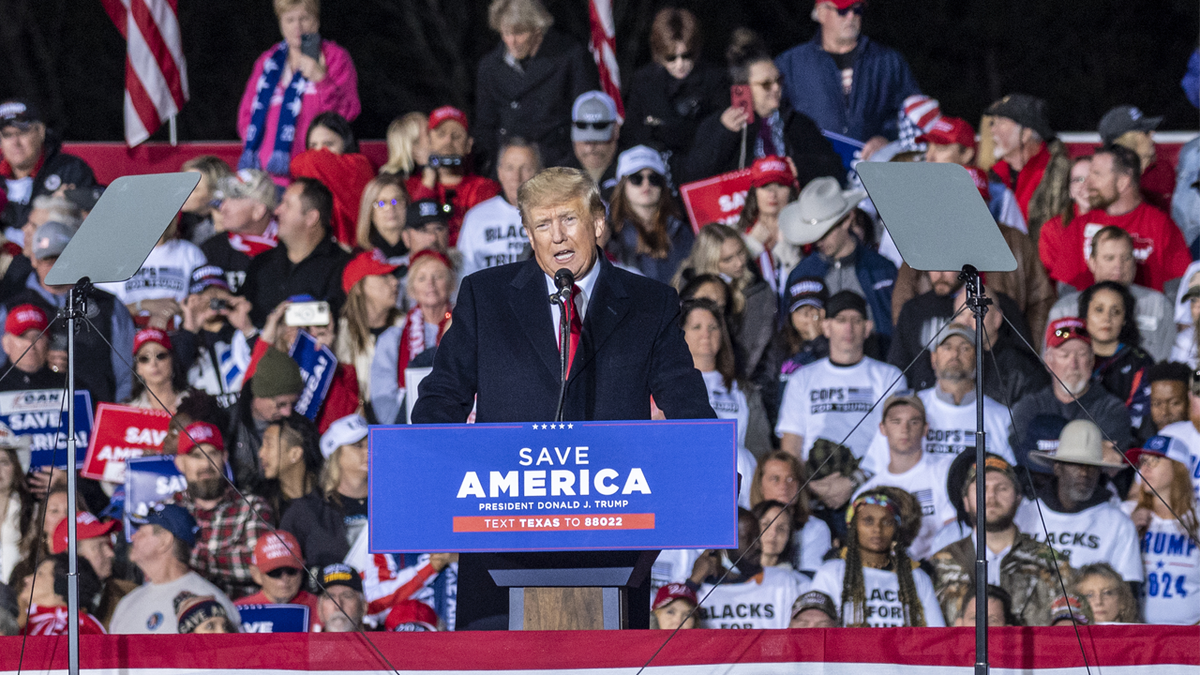
The Colorado Republican Party said it’s asking the U.S. Supreme Court to overturn a ruling that barred former President Donald Trump from appearing on the state’s 2024 ballot.
Earlier this month, the Colorado Supreme Court, in a 4-3 vote, overturned a lower court ruling that allowed Trump to appear on the ballot as a presidential candidate. The initial ruling said a president is not among the officials subject to disqualification on a ballot.
“By excluding President Trump from the ballot, the Colorado Supreme Court engaged in an unprecedented disregard for the First Amendment right of political parties to select the candidates of their choice and a usurpation of the rights of the people to choose their elected officials,” attorneys for the state Republican party wrote in a petition of the Dec. 19 ruling.
POLL SHOWS BIDEN HITTING RECORD LOW APPROVALS, FALLING BEHIND AGAINST TRUMP IN 2024 MATCHUP

Republican presidential candidate former President Donald Trump speaks at a commit to caucus campaign event at the Whiskey River bar on Dec. 2 in Ankeny, Iowa. (Scott Olson/Getty Images)
Fox News Digital has reached out to the Colorado GOP.
In their opinion, the justices on the state’s high court wrote that Trump “incited and encouraged” the use of violence to prevent the peaceful transfer of power on Jan. 6, 2021, when many of his followers stormed the U.S. Capitol as congressional lawmakers were certifying President Biden’s election win.
The case is being appealed based on three main arguments: whether the president is among those officials subject to disqualification by Section Three of the 14th Amendment, the so-called insurrection clause; whether Section Three is “self-executing,” meaning that it allows states to remove candidates from a ballot in absence of any congressional action.
The last point rests on whether denying a political party the ability to choose a candidate of its choice in a presidential primary and general election violates the First Amendment Right of Association. The attorneys said by excluding Trump, Colorado’s highest court has concluded that individuals, courts and election officials can possess legal authority to enforce Section Three.
“Rejecting a long history of precedent, a state Supreme Court has now concluded that individual litigants, state courts, and secretaries of state in all 50 states plus the District of Columbia have authority to enforce Section Three of the Fourteenth Amendment,” the state party wrote.

Former President Donald speaks to a crowd a rally at the Montgomery County Fairgrounds on Saturday, Jan. 29, 2022 in Conroe, TX. (Getty Images)
The party also said that other states may follow Colorado’s lead and exclude Trump from their ballots as well. Disqualification lawsuits relating to Trump’s appearance on the ballot are pending in 13 states, including Texas, Nevada and Wisconsin.
“With the number of challenges to President Trump’s candidacy now pending in other states, ranging from lawsuits to administrative proceedings, there is a real risk the Colorado Supreme Court majority’s flawed and unprecedented analysis will be borrowed, and the resulting grave legal error repeated,” the petition states.
In the lower court ruling, Colorado District Judge Sarah B. Wallace allowed Trump to stay on the ballot, but found that he “engaged in insurrection” for his role in the Jan. 6 Capitol riot.
Biden won Colorado by 13.5 points in 2020.
CLICK HERE TO GET THE FOX NEWS APP
On Wednesday, the Michigan Supreme Court rejected an attempt to remove Trump from the state’s 2024 Republican primary ballot.
“Significantly, Colorado’s election laws differ from Michigan’s laws in a material way that is directly relevant to why the appellants in this case are not entitled to the relief they seek concerning the presidential primary election in Michigan,” Justice Elizabeth Welch wrote Wednesday, explaining the court’s ruling.








